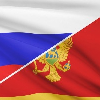Religion and / or Law: what alarmed the community of the SPTs in Montenegro?
This is an automatic translation.
Click here to read the publication in the original language.
Religion and / or Law: what alarmed the community of the SPTs in Montenegro?
Continuing the theme https://sve.me/wp-admin/post.qs?post=14895&action=edit&lang=enThe bill "On Freedom of Religion" of the Ministry of Human Rights and Minority Rights caused a certain resonance in the Montenegrin society.
Judging by the results of the public debate with the participation of representatives of religious communities, the following articles of the bill did not like the representatives of religious confessions:
— Article 4, which states, inter alia, that it is necessary to notify the Government of Montenegro of the appointment of high dignitaries of religious religious communities prior to the appointment;
— Article 7 prohibiting the political activities of religious communities and the abuse of religious feelings for political purposes;
— Article 11, which contains two interesting points: religious communities registered and operating in Montenegro can not operate outside of Montenegro; the headquarters of the religious community, which is registered and operates in Montenegro, should be in Montenegro;
However, Article 11, and others, too, are balanced by the provisions of Article 12, which states that certain issues of common interest to Montenegro may be governed by a treaty concluded between the government and the religious community.
— According to Article 16, all religious institutions must be registered, the second paragraph of this article states that the address of the community should be in Montenegro, article 19 states that if the second paragraph of article 16 is not fulfilled, the entry of such a religious organization into Montenegro is prohibited — and this the decision is final.
— Article 30 states that religious communities must pay taxes, fees and other payments in accordance with the law, although they may be wholly or partially exempt from taxes and other obligations, in accordance with the law.
— Article 41 states that the acquisition and target expenditures of religious communities will be controlled by the competent authorities, in accordance with the law.
— Article 52 of the bill establishes that all religious buildings built in Montenegro before 1918 must be transferred to state ownership, in the status of cultural values.
Such is the conflict content of the Pandora's box, discovered by the project developers when the Law was transformed from 1977. Completion of the public discussion of the document was planned for September 14, but was extended until September 30, as judging by the reviews in local media, the bill was not liked by representatives of almost all religious communities.
The discussion of the draft law was accompanied by an aggravation of relations between the supporters of the Serbian Orthodox Church and the Montenegrin Orthodox Church, which were kept within the law by the police forces. At the last discussion, the representatives of the ChPP did not enter from the central entrance, so as not to collide with the supporters of the SPTs.
Representative of the SPO Velibor Džomić loudly called the bill the legal assassination of churches and religious communities. The anxiety of the SPC is understandable: in Montenegro, under the jurisdiction of the Serbian Orthodox Church there are the Montenegrin-Primorsky Metropolis and the Budilyan-Nikshich Diocese, in part the Mileshevsky Diocese and the Zakhumian-Hercegovina and Maritime Diocese, which cover the majority of the country's population. If the bill is adopted and will work in full force, it will be necessary to revise the territorial, organizational and economic structure of the SPC, and within 60 days. This is a complex process.
Similar claims are made by the Catholic community of Montenegro. The point of view of the Catholic Church was expressed by the lawyer Vladimir Marvučić, after the discussion in the government, saying that the Catholic parishes in Montenegro can no longer relate to the jurisdiction of the Roman Catholic Church if the bill is adopted. It also seems humiliating for the representative of the Catholic Church in Montenegro that the traditional churches of Montenegro * must be registered.
Vice President of the Bosnian Party Suljo Mustafić said that the law is not acceptable for most traditional churches, including Islam, in particular because the prohibition of political activity is very harsh, supported by the representative of the Islamic community of Montenegro, Fuad Chekich (Fuad Čekić).
The Montenegrin Orthodox Church and the Jewish community positively assessed the bill. The representative of the Chernobyl NPC, Nikola Belada, noted that the bill contains only technical errors. Chairman of the Jewish community Jaša Alfandari (Yasha Alfandari) assessed the bill as acceptable.
We will continue to follow the fate of the ambiguously perceived bill.
______________________________________________________________________________
* Apparently, Marvuchich and other participants in the discussions, often using the term "traditional" churches of Montenegro, have in view the Serbian Orthodox, Roman Catholic, Slovak Evangelical, Reformed Christian Evangelical Christian churches, as well as Islamic and Jewish religious communities. In the draft law of 2015 for independent Montenegro there is no provision for traditional communities.
Sources:
Media of Montenegro
http://www.mmp.gov.me/ministarstvo
http://www.paragraf.rs/
Evgeny Novozhilov
#EvgenyNovozhilov
This is an automatic translation.
Click here to read the publication in the original language.

















